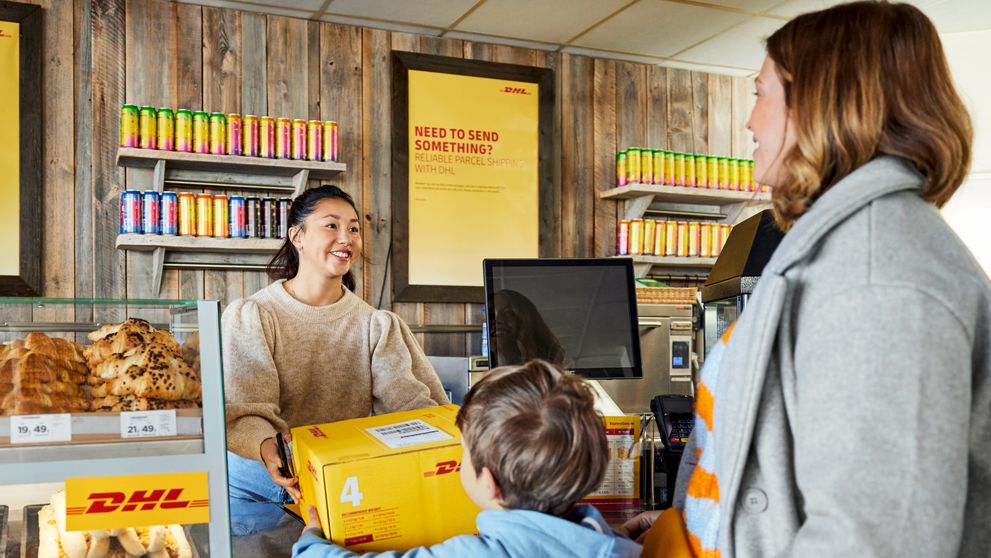Generation Z, broadly defined as those born between the mid-1990s and early 2010s, has emerged as a powerful force in the current consumer landscape. As digital natives who grew up with technology at their fingertips, Gen Z has a unique set of expectations, preferences, and behaviors that set them apart from previous generations.
Their influence is undeniable, shaping trends and disrupting industries from fashion and technology to food and entertainment. With such a large impact on numerous markets, understanding the nuances of Gen Z’s buying habits is essential for businesses looking to connect with this influential cohort, to thrive in the ever-evolving e-commerce landscape.
Who are the Gen Z’s?
Gen Z’s have firmly established themselves as a driving force in today's consumer landscape. Their unique experiences and perspectives shape their buying habits, setting them apart from previous generations. Here’s some background information about them:
- Birth years: While there's no single agreed-upon definition, Gen Z typically includes those born between 1997 and 2012.
- Demographics: Gen Z is the most diverse generation in history, comprising a broader range of racial and ethnic backgrounds than any generation that has come before1, and representing a wide range of ethnicities, cultures, and socioeconomic statuses.
- Purchasing power: Despite their young age, Gen Z’s spending power is already a force to be reckoned with, and it’s projected to hit $12 trillion by 20302. Their purchasing decisions are influencing almost all industries, from beauty and personal care to travel and education.
Characteristics of Gen Z consumers
Gen Z consumers have a unique set of characteristics that set them apart, particularly when it comes to consumer behavior. These include:
- Digital natives: Gen Z consumers have grown up immersed in technology, utilizing digital channels for various aspects of their lives, from communication to shopping. They are adept at navigating online platforms, researching products, and comparing prices. This digital fluency makes them discerning consumers who expect seamless online experiences and personalized interactions with brands.
- Values-driven: Gen Z consumers are known for their strong sense of social and environmental consciousness, with a study conducted by First Insight citing that 62% prefer to buy from sustainable brands, and 73% willing to pay more for sustainable products3. Businesses that demonstrate a commitment to these values can cultivate deeper connections with Gen Z and earn their loyalty.
- Individuality: Self-expression and individuality are highly valued by Gen Z consumers. They are drawn to brands and products that allow them to express their unique personalities and preferences. Businesses that offer customization options, unique experiences, and personalized marketing messages can effectively appeal to this desire for individuality.
What is influencing Gen Z’s purchasing decisions
Values and the desire for authenticity
As established earlier, Gen Z consumers are highly discerning and values-driven, seeking brands that resonate with their beliefs and that demonstrate a genuine commitment to social and environmental responsibility. Other influences include:
- Brand alignment: Gen Z consumers prefer brands that are authentic, transparent, and align with their values, such as sustainability, social responsibility, and inclusivity. They want to support businesses that make a positive impact on the world and reflect their own ethical beliefs.
- Ethical practices: Gen Z consumers are more likely to support businesses that demonstrate ethical practices, fair labor standards, and environmental consciousness. In fact, Edelman identified that 73% only buy from brands they believe in4, and McKinsey found that 70% try to purchase from brands they find ethical5.
- Genuine messaging: Gen Z consumers can spot inauthentic marketing efforts from a mile away. They value genuine communication and transparency from brands. Building trust through honest and open messaging is crucial for connecting with Gen Z.
Social media
Social media plays a pivotal role in the lives of Gen Z consumers, shaping their perceptions, influencing their decisions, and driving their purchasing behaviors. These include:
- Influencer marketing: Social media influencers, with their engaged and loyal followings, play a significant role in shaping Gen Z’s purchasing decisions. Gen Z consumers trust recommendations from peers and online personalities who share their values and interests. Collaborating with relevant influencers can be an effective way to reach and engage this demographic.
- Social proof: Gen Z consumers often rely on social media reviews and recommendations from friends and family before making a purchase. They value the opinions of their peers and trust the experiences shared on social media platforms. Businesses can leverage this by encouraging customer reviews, testimonials, and user-generated content.
- Trend spotting: Social media platforms serve as a hub for discovering new trends and products, influencing Gen Z’s consumption habits. By staying up-to-date on social media trends and engaging in relevant conversations, businesses can connect with Gen Z consumers and showcase their products or services in a timely and engaging manner.
Price sensitivity
Gen Z consumers are willing to spend on quality products and experiences, but they also seek good value for their money. They’re particularly interested in:
- Value consciousness: While Gen Z consumers are willing to invest in quality and experiences, they are also price-conscious and seek fair transactions. They are discerning shoppers who research and compare prices before making a purchase, demonstrating their desire for both quality and affordability.
- Deals and promotions: Deals, discounts, and loyalty programs that offer savings and rewards are highly appealing to Gen Z consumers. They are more likely to make a purchase if they feel they are getting a good deal, highlighting their savvy shopping habits.
- Subscription services: Gen Z consumers are open to subscription services that provide value and convenience, such as streaming platforms like Netflix and curated product boxes. This demonstrates their preference for flexible and affordable consumption models that cater to their evolving needs and interests.
Gen Z’s shopping preferences
Omnichannel shopping experiences
Gen Z consumers are accustomed to a flawless and integrated shopping experience. They expect a consistent brand experience regardless of how they interact with a business, including:
- Seamless integration: Gen Z consumers expect a seamless shopping experience across online and offline channels, with easy transitions between browsing, purchasing, and customer support. They may discover a product online, visit a physical store to try it out, and then make the purchase online later. Businesses need to ensure a consistent brand experience and smooth transitions across all touchpoints.
- Mobile optimization: Mobile devices are central to Gen Z’s shopping journey. They often use their smartphones to browse products, compare prices, read reviews, and make purchases. Businesses need to ensure that their websites and apps are mobile-friendly and optimized for a seamless shopping experience on smaller screens.
Personalization
In today's digital age, consumers increasingly value personalization, and Gen Z is no exception. They expect brands to cater to their individual preferences and needs, and are looking out for:
- Customized products: Gen Z consumers are drawn to personalized products that cater to their needs. They appreciate brands that offer customization options, provide unique product recommendations, and create tailored experiences.
- Targeted marketing: Rather than generic advertising, Gen Z consumers appreciate brands that provide relevant and personalized marketing messages. They are more likely to engage with marketing that feels specific and relevant to their interests, underlining their preference for tailored communication.
- Unique experiences: Gen Z consumers place a high value on unique and memorable experiences. Brands can leverage personalization to create a sense of exclusivity and cater to individual tastes, offering limited-edition products, personalized recommendations, or exclusive access to events or content.
Sustainability and ethical consumption
Gen Z consumers are increasingly conscious of the impact their purchasing decisions have on the environment and society. They are more likely to support businesses that demonstrate a commitment to sustainability and ethical practices, and take pride in:
- Eco-conscious choices: As established earlier, Gen Z consumers are increasingly making eco-conscious purchasing decisions, and are actively seeking out sustainable products and supporting brands with strong environmental commitments — including those engaged in eco-friendly shipping.
- Ethical sourcing: Concerned about the ethical sourcing of products, Gen Z consumers prefer brands that prioritize fair labor practices and responsible supply chains. They want to ensure that the products they purchase are not contributing to exploitation or environmental degradation, showcasing their awareness of social and environmental issues.
- Minimalist consumption: Rather than accumulating material possessions, Gen Z consumers are increasingly adopting a minimalist approach to consumption. They prioritize quality over quantity and seek durable, long-lasting products, demonstrating their shift towards more conscious consumption habits.
Opportunities for retailers
To effectively engage with Gen Z consumers and thrive in the evolving e-commerce landscape, retailers need to adapt their strategies to cater to their unique preferences and expectations. These include:
- Embracing digital channels: Prioritize your online presence and create engaging digital experiences to reach and connect with Gen Z consumers. This includes having a user-friendly website, active social media presence, and targeted digital marketing campaigns.
- Authenticity and transparency: Build trust and loyalty by being authentic and transparent in your brand communication, highlighting your values and ethical practices. Gen Z consumers value honesty and sincerity, so businesses need to communicate genuinely and avoid misleading or exaggerated claims.
- Personalization and customization: Offer personalized product recommendations, targeted marketing messages, and customized experiences to cater to Gen Z’s desire for individuality. Leverage data and technology to tailor your offerings and create a unique experience for each customer.
- Sustainability and social responsibility: Demonstrate a commitment to sustainability and social responsibility through eco-friendly practices, ethical sourcing, and support for social causes that resonate with Gen Z. Since this generation is increasingly concerned about environmental and social issues, they are more likely to support businesses that share their values.
Understanding what motivates Gen Z’s to purchase: The future of e-commerce

Gen Z, with their unique characteristics and evolving preferences, is undeniably shaping the future of e-commerce. Their deep integration with technology, strong values, and desire for individuality are driving significant shifts in the consumer landscape. Businesses that understand and adapt to these trends will be well-positioned to thrive in the years to come.
However, as this generation’s expectations continue to evolve, businesses also need to prioritize quality assurance and operational excellence to meet these high standards. This includes selecting the correct delivery partner, to send international parcels timely and reliably, providing accurate product information, and offering exceptional customer service.
Partnering with a trusted logistics provider like DHL Express can help businesses achieve these goals and enhance the overall customer experience, with DHL’s logistics team committed to efficiency, reliability, and customer satisfaction. To get started with their overseas shipping services, visit the DHL Express website today!
1 AECF
2 Nielsen IQ
3 First Insight
4 Edelman
5 McKinsey









































